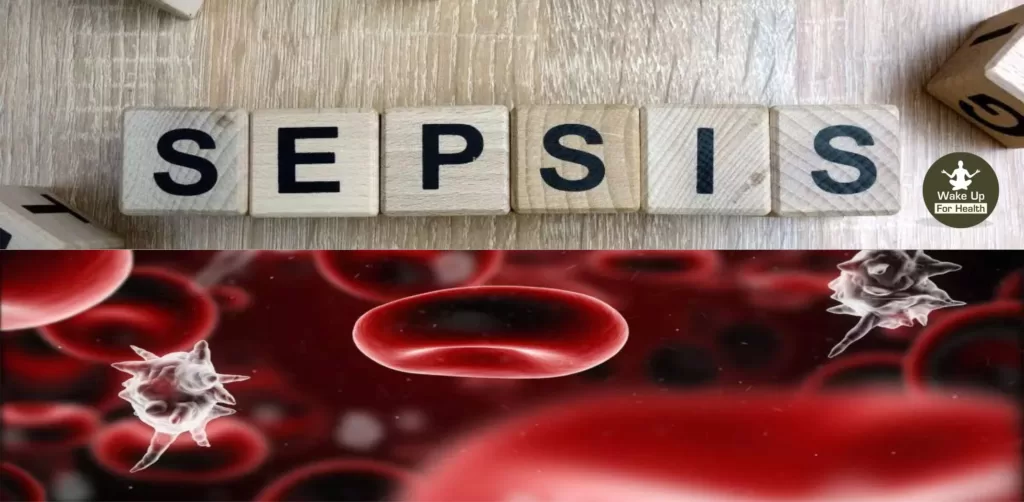Former President of India Mr. Pranab Mukherjee is in septic shock due to lung infection. Because of this, his health condition has worsened. Explain that septic shock is a serious condition and it occurs when a person’s blood pressure drops to a dangerous level after an infection.

Any type of bacterial, fungal and viral (in rare cases) can cause sepsis, which if left untreated can progress to septic shock. To fight infection, immune chemicals secreted into the blood cause massive inflammation, which leads to blood clots. This reduces blood flow, depriving the organs of oxygen and nutrients. Here we will know briefly about sepsis shock, sepsis symptoms, sepsis causes and treatment for sepsis.
Dealing with Sepsis and Septic Shock
In this disease, the patient’s blood circulation deteriorates, which causes swelling in the body. The body’s essential organs are affected by this sickness since it is so harmful. This causes blood clots to form. The blood pressure of the patient starts falling to a dangerous level. In this, the body parts do not get enough oxygen and nutrients.
According to doctors, if the symptoms of this disease are identified and treated early, then the serious condition can be avoided. Due to this disease, there is a very bad effect on the organs. Organs may stop working. The organ failure stage is called septic shock, due to which the patient may die.
Blood infection is called sepsis or septicemia. One of the most dangerous infections’ side effects is this syndrome. When the chemicals dissolved in the blood become the cause of irritation and inflammation in the whole body to deal with the infection, then it is called sepsis. As a result, the body experiences many modifications that might harm numerous organs and cause them to stop functioning.
What are the Symptoms Associated with Sepsis?, Recognizing Symptoms, Treatment Protocols
The early stage of sepsis can be diagnosed by the presence of some of the following symptoms.
• High fever is when the body temperature rises above 101°F, or the body becomes colder than 96.8°F.
• The patient’s breathing becomes very rapid, with a respiratory rate measured above 20 breaths/1 minute.
• The heart rate also increases above 90 beats/minute, causing palpitations.
• A doctor confirms infection in any part of the body.
• In the severe stage of sepsis, patients suffer from many other symptoms, because many organs stop working at this time.
• Decreased frequency of urination
• Shortness of breath
• Sudden change in mental status
• Withering of the skin in the infected areas
• Irregularity in heartbeat
• Sharp decrease in platelet count
• The body becomes very weak overall
• Feeling of unpleasant coldness
• Fainting
All these symptoms are also seen in cases of septic shock, as well as a dangerous drop in blood pressure.
Must Know Also : Memory Care – Dementia Disease : Symptoms, Types, Causes and Treatment

What are the causes Due to Sepsis?
This could be due to the following reasons. As-
• Sepsis is due to some reasons like bacterial infection, viral infection etc. Some of the most common causes are pneumonia, stomach infection, kidney infection or blood infection.
• Some bacteria become resistant to antibiotics. These antibiotics are the same which at one time proved helpful in eliminating these bacteria. Such bacteria can also cause sepsis. This week is also due to the immune system.
How to Diagnose Sepsis?
This information can be obtained in the following way. As-
• Tests by a doctor are necessary to determine whether you have sepsis and to identify its severity.
• First of all you will have a blood test which shows infection, clotting and liver kidney function. Along with this, there is also a decrease in the amount of oxygen, electrolyte imbalance, which affects the lack of water in the body and the acid in the blood.
• You have to get some other tests done along with blood test like urine test which shows whether there is bacteria in urine or not. Examining wound secretions and examining mucus can tell what type of bacterial infection you have.
• If the above mentioned tests do not reveal the infection then X-ray for lung infection, CT scan for stomach, intestine, pancreas infection and MRI for tissue infection are detected.
Redressal – Sepsis Shock
Get yourself vaccinated against flu, pneumonia and other diseases.
Practicing proper hygiene by cleaning scratches and wounds and washing hands and bathing regularly can help prevent infections that can progress to sepsis.
If you have an infection and notice any of the following symptoms, seek immediate treatment to prevent sepsis.
• Fever and chills
• Excessive thirst
• Difficulty breathing, fast heart rate, low blood pressure, and poor urine output, all of which are symptoms of organ dysfunction
• Audacious
• Extreme weakness, dizziness, lethargy or confusion
• Loss of appetite
• Skin or sores that become red, warm, tender and swollen or oozing pus
What is Fibromyalgia Syndrome? How to Treat?
How to Treat Sepsis Shock?
If you get to know sepsis in the beginning which is not very serious then you can easily treat it by using antibiotics. Recovery is also easier in this situation.
If you don’t treat sepsis, it can be a very serious condition. This can lead to death. In such a situation, doctors use many medicines for the treatment of sepsis, such as antibiotics for infection, vasoactive for blood pressure, insulin to balance blood sugar.
When sepsis is severe, IV fluids and a respirator are needed for breathing. Dialysis is required in case of kidney failure. During dialysis, a machine cleans the kidneys by filtering excess salt, waste, and water from the blood.
Some cases are severe enough to require surgery to drain the pus, abscess, and infected tissue.
Lifestyle Changes and Home Remedies For Sepsis.
The following lifestyle changes and home remedies may help you cope with sepsis:
• To avoid this, flu and pneumonia vaccinations can be taken as per the doctor’s advice.
• If there is any wound or scratch on the body, take care of it and keep it safe from infection.
• If you get sick frequently, be sure to see a doctor.
• A healthy lifestyle is helpful in reducing the infections that can lead to sepsis.
• Smoking and alcohol should be given up.
If you want to know the answer to any question related to sepsis, then it would be better to understand from the experts.
Strengthen immunity to Prevent Sepsis.
If you are suffering from any infectious diseases and have a weak immunity, then the chances of sepsis may increase due to corona. In such a situation, it is necessary to strengthen your immunity. To increase immunity, eat foods rich in Vitamin C (Vitamin-C Boosts Immunity).
Take care of cleanliness around you. Infection also spreads due to dirt. Don’t drink contaminated water. Use clean water for cooking. Eat fresh food. Drink sufficient amount of water. Do not forget to wear a mask to protect yourself from the outbreak of Coronavirus.
How to Septic Shock Treated?
The earlier sepsis is diagnosed and treated, the less likely septic shock will develop, and the more likely you are to survive. Doctors use a number of medications to treat septic shock, including:
• Intravenous antibiotics to fight infection
• Vasopressor medications, which are drugs that constrict blood vessels and help increase blood pressure
• Insulin for blood sugar stability
• Corticosteroids
Large amounts of intravenous (IV) fluids will likely be administered to treat dehydration and help increase blood pressure and blood flow to the organs. A respirator for breathing may also be necessary.
Surgery may be performed to remove a source of infection, such as draining a pus-filled abscess or removing infected tissue.
Conclusion
Septic shock is a severe complication of sepsis. Your chances of recovering from septic shock will depend on the source of the infection, how many organs have been affected, and how soon you receive treatment after you first begin experiencing symptoms of sepsis.
(Disclaimer: This article is for general information only. It is just to wake you up for your health purpose. Out intension is not to mislead or It cannot in any way be a substitute for any medicine or treatment. Always contact your doctor for more details.)
1 thought on “Sepsis Shock : Septicemia Symptoms, Causes, Prevention and Treatment”